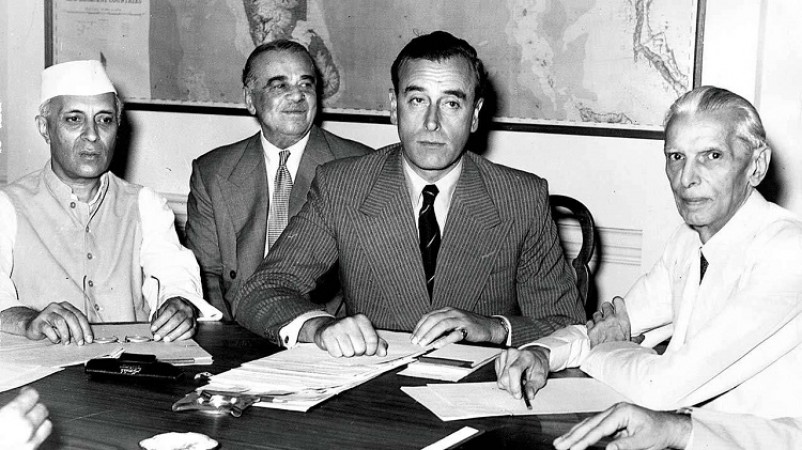
This Day in History: On July 13, 1947, a historic event unfolded in the annals of India's struggle for independence. The Indian Independence Bill, which had been introduced by the British Parliament, officially became an Act. This momentous development marked a crucial turning point in the country's journey towards self-rule, culminating in the eventual formation of two independent nations, India and Pakistan. The passage of the Indian Independence Act laid the foundation for a new era in South Asian history, setting the stage for the end of British colonial rule and the birth of two sovereign nations.
Background: To understand the significance of the Indian Independence Act, it is essential to delve into the events leading up to its enactment. India, under British colonial rule for nearly two centuries, had been fervently demanding independence and self-governance. The struggle for liberation, spearheaded by prominent leaders like Mahatma Gandhi, Jawaharlal Nehru, and Muhammad Ali Jinnah, gained momentum throughout the early 20th century.
The mounting pressure from Indian nationalist movements, coupled with the exhaustion and economic strain Britain faced following World War II, compelled the British government to consider granting independence to India. The Indian Independence Bill, introduced in the British Parliament in early 1947, aimed to pave the way for the transfer of power and the creation of a separate Muslim-majority state, Pakistan.
The Passage of the Indian Independence Act: After extensive debates and deliberations in the British Parliament, the Indian Independence Bill received royal assent on July 18, 1947. However, it was on July 13, 1947, that the Bill formally became an Act, signaling the imminent end of British colonial rule in the Indian subcontinent.
The Indian Independence Act delineated the partition of British India into two separate entities, India and Pakistan, based on religious demographics. The Act laid out the fundamental principles and mechanisms for the transfer of power and the subsequent division of assets, territories, and resources between the two newly formed countries.
Consequences and Legacy: The Indian Independence Act marked a watershed moment in the history of India and Pakistan. On August 15, 1947, India achieved its long-cherished dream of independence, with Jawaharlal Nehru assuming the role of the country's first Prime Minister. The following day, Pakistan emerged as an independent nation, with Muhammad Ali Jinnah as its founding father and Governor-General.
However, the partition of India came at a heavy price, as communal violence erupted between Hindus, Muslims, and Sikhs, resulting in widespread bloodshed and the displacement of millions of people. The tragic events surrounding the partition left an indelible scar on the collective memory of the subcontinent.
Nonetheless, the Indian Independence Act served as a catalyst for change, providing the framework for India and Pakistan to chart their separate destinies. The Act acknowledged the aspirations of the Indian people and laid the groundwork for the establishment of democratic institutions, setting both nations on the path of self-governance and nation-building.
The Indian Independence Act becoming an Act on July 13, 1947, was a momentous occasion that signaled the end of British colonial rule and the birth of independent India and Pakistan. It represented a hard-fought victory for the Indian people in their struggle for self-determination. Although the partition brought with it immense challenges and tragic consequences, the Act laid the foundation for the growth, development, and democratic governance of two separate nations. The legacy of this historic day continues to shape the political, social, and cultural landscape of both India and Pakistan, serving as a poignant reminder of the power of perseverance and the pursuit of freedom.